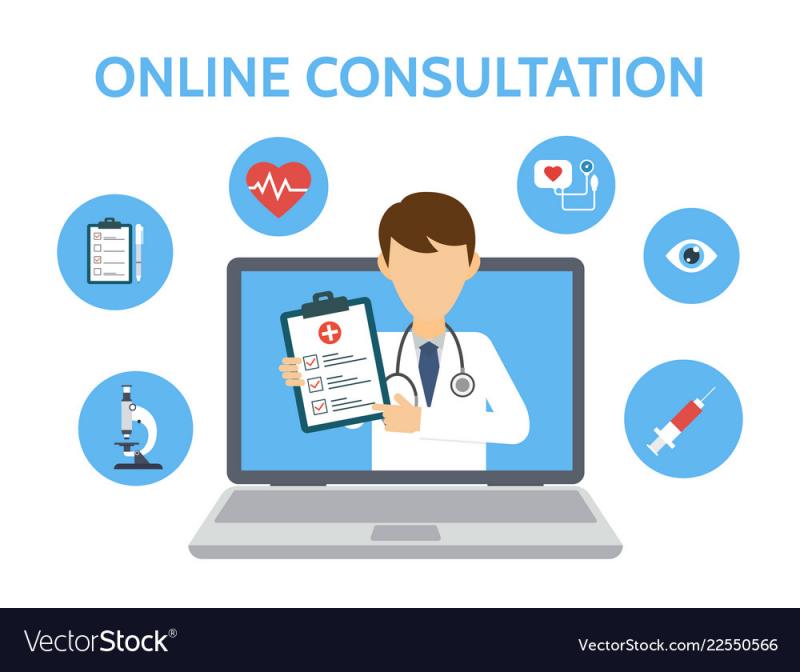Exploring the World of Primary Care Physician Online Consultations
Delve into the realm of Primary Care Physician Online Consultations, where the digital landscape meets healthcare in a seamless blend. This passage sets the stage for a journey filled with insights and discoveries, promising a captivating exploration for readers.
Unveil the nuances and intricacies of online consultations with primary care physicians in the paragraphs that follow, providing a comprehensive understanding of this evolving healthcare trend.
Overview of Primary Care Physician Online Consultations

Online consultations with primary care physicians have become increasingly popular, allowing patients to receive medical advice and treatment remotely through digital platforms. This innovative approach has transformed healthcare delivery by providing convenient access to healthcare services without the need for in-person visits.
Benefits of Primary Care Physician Online Consultations
- Convenience: Patients can consult with their primary care physician from the comfort of their own homes, saving time and eliminating the need to travel to a physical clinic.
- Accessibility: Online consultations make healthcare more accessible to individuals in rural or remote areas who may have limited access to traditional healthcare facilities.
- Cost-effective: Online consultations can be more affordable for patients, as they eliminate travel costs and reduce the overall expenses associated with in-person visits.
- Efficiency: Online consultations allow for quicker appointments and reduced wait times, improving the overall efficiency of healthcare delivery.
Challenges of Primary Care Physician Online Consultations
- Lack of physical examination: One of the main limitations of online consultations is the inability for the physician to conduct a physical examination, which may hinder accurate diagnosis and treatment.
- Technological barriers: Not all patients may have access to the necessary technology or internet connectivity required for online consultations, limiting the reach of this service.
- Security and privacy concerns: Ensuring the security and privacy of patient information during online consultations is crucial, as data breaches or confidentiality issues could arise.
- Limitations in treatment options: Some medical conditions may require in-person evaluations, tests, or procedures that cannot be performed during an online consultation, leading to limitations in treatment options.
How Primary Care Physician Online Consultations Work

Online consultations with primary care physicians have become increasingly popular due to their convenience and accessibility. Patients can schedule virtual appointments with their healthcare providers from the comfort of their own homes, eliminating the need to travel to a physical office.
This process involves the use of various technologies and platforms to facilitate communication between patients and doctors.
Scheduling an Online Consultation
- Patients can schedule an online consultation with a primary care physician through the healthcare provider's website or a designated telemedicine platform.
- They can choose a convenient date and time slot based on the physician's availability.
- Patients may be required to provide basic information such as their medical history, insurance details, and reason for the consultation when scheduling the appointment.
Technologies and Platforms
- Commonly used technologies for online consultations include video conferencing software, secure messaging platforms, and telehealth apps.
- Healthcare providers may use HIPAA-compliant platforms to ensure the privacy and security of patient information during virtual visits.
- Some platforms also offer features such as online appointment scheduling, electronic prescriptions, and secure file sharing for medical records.
Privacy and Security Measures
- During online consultations, physicians are required to adhere to strict privacy regulations Artikeld in the Health Insurance Portability and Accountability Act (HIPAA).
- Platforms used for virtual visits encrypt patient data to prevent unauthorized access or breaches.
- Patient information shared during online consultations is confidential and protected to maintain the trust and security of the healthcare provider-patient relationship.
Types of Medical Concerns Addressed in Online Consultations
Online consultations with a primary care physician are suitable for addressing a variety of medical concerns, ranging from minor ailments to chronic conditions. Primary care physicians can effectively assess and diagnose patients remotely through virtual consultations, providing timely medical advice and treatment recommendations.
However, there are specific criteria to determine when an in-person visit is necessary following an online consultation.
Common Medical Issues Suitable for Online Consultations
- Minor infections such as cold, flu, or urinary tract infections
- Allergies and allergic reactions
- Skin conditions like rashes, eczema, or acne
- Chronic conditions management such as hypertension or diabetes
- Medication refills and adjustments
- Follow-up consultations for ongoing treatment
Assessment and Diagnosis by Primary Care Physicians
Primary care physicians use telemedicine tools to conduct virtual consultations, during which they can review medical history, discuss symptoms, and even conduct a physical examination through video calls. By asking targeted questions and observing the patient's condition remotely, primary care physicians can make an accurate assessment and diagnosis.
Criteria for In-Person Visit Following Online Consultation
It is essential for primary care physicians to determine when an in-person visit is necessary based on the severity of the medical concern, the need for physical examination, or the requirement for further diagnostic tests.
- If the patient's condition worsens or does not improve with initial treatment recommendations
- If a physical examination is crucial for accurate diagnosis
- If additional tests or procedures are needed, such as blood work or imaging studies
- If emergency medical attention is necessary due to a sudden onset of severe symptoms
Patient Experience and Satisfaction with Primary Care Physician Online Consultations

Online consultations with primary care physicians have been positively received by many patients, offering a convenient and efficient way to receive medical advice and treatment without the need for in-person visits. Patient testimonials highlight the various benefits that contribute to their satisfaction with online consultations.
Convenience Factors in Online Consultations
- Flexible scheduling options that allow patients to book appointments at their convenience, eliminating the need to take time off work or rearrange their schedules.
- Reduced travel time and costs associated with traditional visits, making healthcare more accessible for individuals with mobility issues or those living in remote areas.
- Quick access to medical advice and prescriptions, particularly beneficial for minor ailments or follow-up consultations.
- Ability to communicate with healthcare providers through secure messaging platforms, ensuring timely responses to queries and concerns.
Quality of Care Concerns in Online Consultations
- Some patients may be apprehensive about the quality of care received in online consultations compared to face-to-face interactions with physicians.
- However, many online platforms ensure that licensed healthcare professionals conduct consultations and adhere to standard protocols for diagnosis and treatment.
- Patients are also encouraged to provide detailed medical histories and symptoms during online consultations to facilitate accurate assessments and recommendations.
- Follow-up care and monitoring are often integrated into online platforms to ensure continuity of care and address any ongoing concerns.
Regulatory and Legal Considerations in Primary Care Physician Online Consultations
As the field of telemedicine continues to grow, it is essential to understand the regulatory and legal considerations that govern online consultations with primary care physicians. These guidelines play a crucial role in ensuring patient safety, data security, and quality of care in virtual healthcare settings.
Telemedicine Laws and Online Consultations
Telemedicine laws vary by state and country, impacting the practice of online consultations with primary care physicians. These laws govern issues such as licensure, prescribing medication, informed consent, and patient privacy. It is important for healthcare providers to adhere to these regulations to avoid legal issues and ensure compliance with state and federal laws.
Insurance Coverage and Reimbursement Policies
Insurance coverage and reimbursement policies for online consultations with primary care physicians also play a significant role in the adoption of telemedicine. Many insurance providers now offer coverage for virtual visits, making healthcare more accessible to patients. However, policies regarding reimbursement rates, eligible services, and documentation requirements may vary, affecting the financial viability of online consultations for healthcare providers.
Data Security and Patient Privacy
In addition to legal considerations, data security and patient privacy are paramount in online consultations with primary care physicians. Healthcare providers must comply with HIPAA regulations to protect patient information and maintain confidentiality during virtual visits. Implementing secure communication platforms and encryption methods is essential to safeguard sensitive data and ensure patient trust in telemedicine services.
Medical Malpractice and Liability Issues
Medical malpractice and liability issues also need to be addressed in primary care physician online consultations. Healthcare providers must have appropriate malpractice insurance coverage that extends to virtual care settings. Clear documentation, informed consent procedures, and adherence to clinical guidelines are crucial to mitigate risks and maintain the standard of care in online consultations.
Conclusion
In conclusion, the realm of Primary Care Physician Online Consultations offers a glimpse into the future of healthcare delivery, bridging gaps and enhancing accessibility. This summary encapsulates the essence of our discussion, leaving readers with a newfound appreciation for the possibilities that lie ahead.